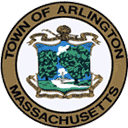
Frederick Ryan, Chief of Police
112 Mystic St.
Arlington, MA 02474
For Immediate Release
Wednesday, Oct. 1, 2014
Contact: Captain Richard Flynn, PIO
Office: 781-316-3907
Cell: 781-844-1224
Email: rflynn@town.arlington.ma.us
Contact: John Guilfoil
Phone: 617-993-0003
Email: john@jgpr.net
Arlington Police Alert Residents to Multiple Different Types of Scams Trending in the Region
IRS Scam, Grandparent Scam, and Others Designed to Steal Your Money and/or Identity
ARLINGTON — Police Chief Frederick Ryan and the Arlington Police Department are alerting residents about a variety of phone and email scams that are aggressively targeting citizens.
These scams generally have two things in common: (1) They originate from someone you do not know and (2) they ask for payment in ways that are nearly untraceable. The APD encourages people to never to send money to anyone who has contacted you that you do not know. Here are several of the most prevalent scams targeting local communities:
The IRS Scam
The scammer usually claims to be from the Internal Revenue Service or another government agency and informs the victim they did not pay or did not correctly file state or federal taxes. The victim is told they owe money to the IRS and it must be paid promptly through a pre-loaded debit card or wire transfer. If the victim refuses to cooperate, they are then threatened with arrest, deportation or suspension of a business or driver’s license. In many cases, the caller becomes hostile and insulting.
Residents are reminded that the IRS will always send taxpayers a written notification of any tax due via the U.S. mail. The IRS never asks for credit card, debit card or prepaid card information over the telephone. For more information on IRS Scams, go to www.irs.gov and type “scam” in the search box.
The Grandparent Scam
These scams prey on seniors to get money from well-meaning relatives. Imposters pose as relatives in trouble creating stories about an individual’s family to make the scenario sound authentic and tricking them into sending money. In a typical scenario, the caller tells the victim that he or she has been arrested overseas and is in need of money in order to be released by local authorities. The caller stresses the urgency of the situation and often claims to be embarrassed, asking the senior not to tell anyone else in the family about the call.
In some cases the victim may receive a call from a second individual claiming to be a law enforcement official who verifies the story. As in many scams, the caller then asks the senior to wire money through a service such as Western Union or provide prepaid card information so they can get payment quickly. Government agencies including law enforcement will not contact you demanding payment by wire transfer or prepaid cards.
Foreign Lottery Scam
Typically the foreign lottery scam is conducted by an unknown caller who contacts the victim by phone and convinces them they have won a lottery. The victim is then told before they can claim their winnings they must first pay taxes on the prize money. After the victim mails payment in the form of a check, money order, or prepaid card, they are instructed to wait on a fictional date when the winnings will be sent to them. The winning are never received.
A good rule of thumb is to never wire or send money to anyone, anywhere who says you’ve won a prize. The odds are, it’s a scam.
Computer Phishing Scam
Computer phishing scams are a well-known form of scams. Someone calls or emails the victim pretending to want to help with a variety of common computer problems. The caller may state that he/she works for Microsoft or Apple and can fix the errors coming from your computer. They will then ask you to log on to correct problems and may ask for personal information. This is a scam! Do not follow their directions or advice and provide no information to them. Just hang up or delete the email.
Utility Scam
A utility billing scam is targeting National Grid and NStar Electric customers in New England. The scammers demand immediate payment for utility balances, which customers might not even owe. The fraudulent callers claim to be from the utility company and threaten customers with service shut-off unless they provide immediate payment. As in other scams payment is demanded in the form of a wire transfer or prepaid card/money pack. Callers may also attempt to obtain credit card or bank account information that can be used to access the accounts.
Utility companies will contact customers via U.S. mail or online if you have signed up for that form of service. If you have any doubt about the caller, hang up immediately and call a customer service representative of the utility company.
“Your vigilance will help the APD in our effort to keep Arlington safe and secure,” said Chief Frederick Ryan, “If you believe you may be a victim of a scam, or if you have a question regarding the validity of a contractor or someone who has contacted you looking for money, please contact the Arlington Police Department at 781 643-1212.
###
